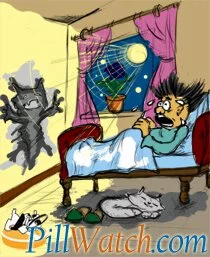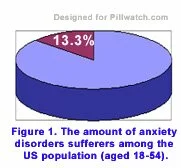
We are used to take care of our health. We treat heart, kidney and liver disorders; we do our best to get rid of flu and cold as soon as possible. That is good and necessary to do. But: a sound mind in a sound body.The proverb reminds us that there is one more part of our nature, which needs much attention. The state of our mind, therefore, is of no less importance, than our physical health. Moreover, they both always go close together. The malfunction of one system causes changes in the other one. As a result, it is necessary to take care not only about our body, but about our mental health as well.
Nowadays human mind suffers more than ever from the intense and exhausting rhythm of life. Very often, however, we hesitate to admit that there is a problem, which must be solved, and dismiss it saying: I am just in low spirits today. We do not think that tomorrow will be too late.
The problem remains unsolved and aggravates with the lapse of time. Ignorance of things concerning mental disorders often has a sad ending. Excessive, irrational dread of everyday or particular situations or objects is the first sign of the possible anxiety disorder, which is a serious mental disease, affecting estimated 19 million Americans.
Irrational fear is the key feature of the problem, but taking into account additional symptoms, scientists define several types of anxiety disorder.
1. Generalized Anxiety Disorder (GAD) is the most difficult to diagnose, since it often lacks objective symptoms. It is mostly characterized by the excessive uncontrollable daily worrying about common things like health, money, business or family or even without a clear point of concern. A person anticipates a disaster and it becomes hard for him/her to get through the day.
2. Panic Disorder (PD) is the illness, which manifests itself through the strong usually short (10 minutes) episodes of uncontrollable terror, called Panic Attacks. They can happen any time, even during the sleep. Their frequency differs from person to person. Panic Attacks cause people avoid situations similar to that of the first episode, thus disabling them from usual rhythm of life. Furthermore, a fear of the next attack provokes constant worrying between them.
Panic Attacks can be of three types: unexpected (without any reason, with no warning), situational (always starts in the same situation), situationally predisposed (is likely to begin in some particular situation, but not always does).
The worst thing is that the predisposition to develop PD is inherited. On the other hand, this mental disorder is among those to be the most successfully medically treated.
3. Agoraphobia can sometimes coincide with PD. It is a fear of being unable to escape if any accident happens. People usually feel it in the crowded places, in the transport, on the bridge, etc. Persons suffering from this disease try to avoid places and situations they fear. Agoraphobia rarely occurs in children.
4. Obsessive-Compulsive Disorder begins, unlike Agoraphobia, in the childhood. A person has disturbing thoughts or images (called obsessions) and performs certain rituals (compulsions) in order to get rid of those obsessions.
The most common obsessions are: thoughts about contamination by dirty objects, extreme need of orderliness, permanent doubts (about whether an oven is off or the door is locked, etc). Some people think about violence and fear that they will not be able to control it, therefore they can hurt anyone.
The compulsions performed by a sick person seem to bring a relief, though not for long. Therefore, an extreme need to repeat it all again and again appears. As a result, those activities take not less than an hour a day. Usually sufferers count the objects, wash their hands, repeat some words or names, check everything and hoard useless things.
The vast majority of adults are aware of what they do but cannot control or stop it anyway. Children, on the contrary, usually do not realize that their obsessions and compulsions are excessive.
5. Post-traumatic Stress Disorder (PTSD) may develop in a person, who has experienced a terrifying event, such as mugging, rape, kidnapping, child abuse, witnessing death, different accidents and natural disasters. Usually a person lives through the same situation over and over again in the night-mares, has difficulty to fall asleep, or avoids people and situations, which remind him/her about the tragic event. Smells, objects or sounds can also be the triggers to bring the memories back.
Anyone, irrespective of age, can suffer from PTSD, though children are more likely to forget about the tragic experience in some time.
A positive diagnose of PTSD is stated if the symptoms last longer than a month. 6. Social Phobia (Social Anxiety Disorder) is characterized by the intense fear of being on public. Sufferers are embarrassed to be watched; they are afraid to say or do something inappropriate and being laughed at. Either one particular situation or any social activity can be a reason for Social Phobia.

Scientists confirm that the predisposition to this disorder can be inherited from parents and can manifest itself in the childhood (though seldom) as well as in the older age.
7. Specific Phobias are irrational intense fears of something that is actually of little or no danger at all (a fear of height, insects, blood, etc). The most common disorder is phobia of particular types of animals or insects.
Specific Phobias can develop at any age. 20% of the adult fears of this kind are likely to vanish on their own with the lapse of time.
People with any mental disorders are more sensitive and susceptible. Often, loving family and caring, understanding friends help overwhelm the disease easier and faster. So, give some care and affection to those who you love. This will make them stronger.
Ivanna
| Tip for you : Sign-in with Your OpenID and post faster, easier and with easy access to all your past posts. | |
|
Your Nick: |
















